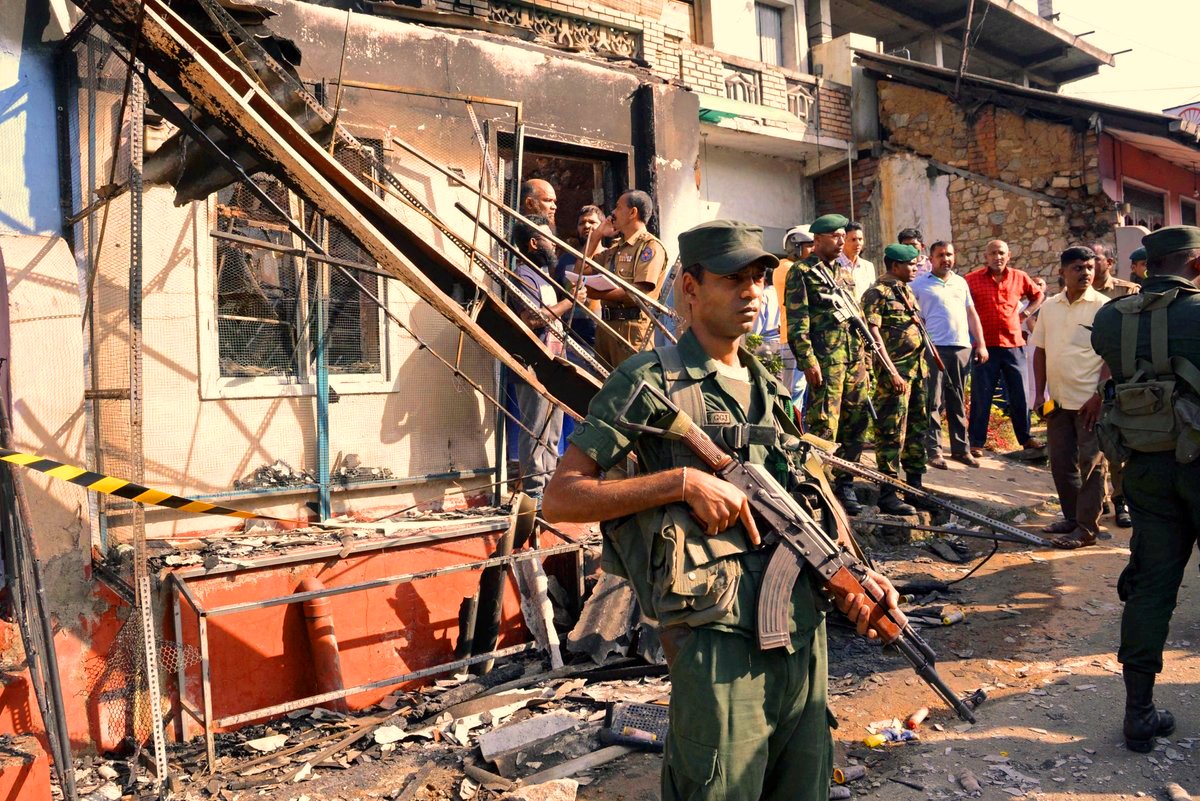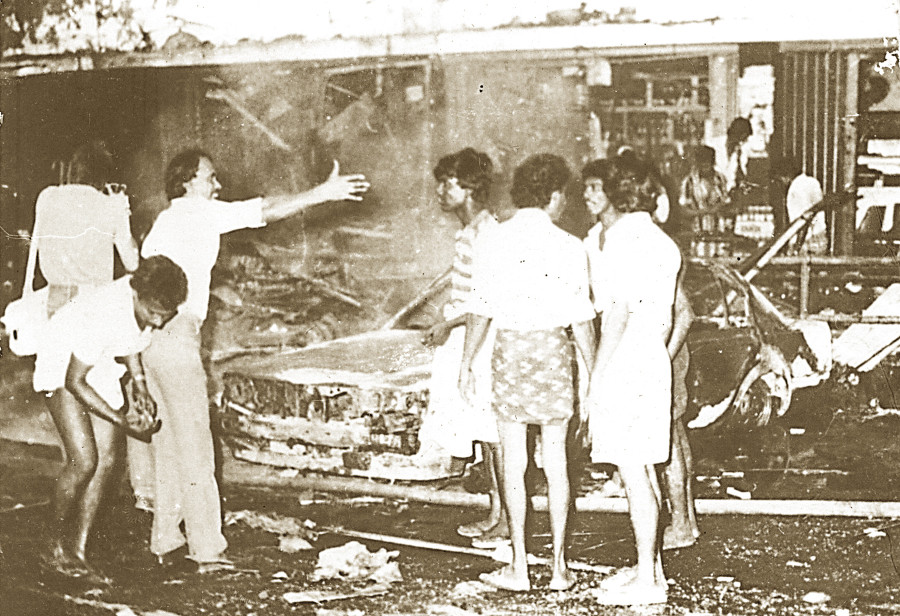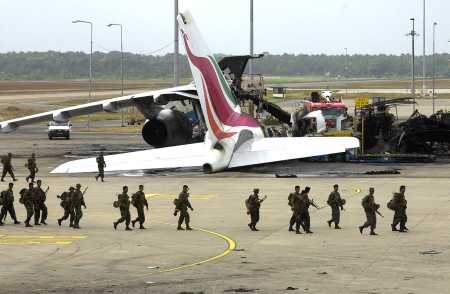
New Delhi: A day after sending police and military into the district of Kandy to prevent communal clashes, the Maithripala Sirisena government has declared a nationwide 10-day-long state of emergency in Sri Lanka.
The announcement came after Buddhist mobs swept through the hill town of Kandy on Monday, burning at least 11 Muslim-owned shops and homes, after a Buddhist man was reportedly killed by a group of Muslims.
According to the government spokesman, tension has been growing between the two communities in Sri Lanka over the past year, with some hardline Buddhist groups accusing Muslims of forcing people to convert to Islam and vandalizing Buddhist archaeological sites.
Few Buddhist nationalists have also protested against the presence of Muslim Rohingya asylum-seekers in Sri Lanka who have arrived from Myanmar.
Sri Lanka accounts for 10 percent of Muslim population, Buddhists Sinhalese make up nearly 75 percent and another 13 percent of the population is Hindu.
Observers blame the nationalist Buddhist organization Bodu Bala Sena (BBS) group for the ongoing violence but many have placed the blame on the Muslim groups.
In February 2018, five people were wounded and several shops and a mosque were damaged during a clash between Buddhist and Muslim groups.
In June 2014, an anti-Muslim campaign was launched following the deadly Aluthgama riots. The mainstream media in Sri Lanka censored news about the riots following orders from the Sri Lankan government. According to civil rights groups, the riots were meticulously planned and executed to military precision which suggested that Sri Lankan military had some role to play.
The United National Party (UNP) which was the main opposition party then condemned the riots and blamed the governing United People’s Freedom Alliance for instigating the violence. UNP MP Mangala Samaraweera, a vocal critic of the Rajapaksa government, went as far as to name three senior military intelligence officers – General (retd) Kapila Hendawitharana (defence ministry advisor), Colonel Suresh Salley and Deputy Inspector General Chandra Wakishta (deputy chief of the State Intelligence Service) – whom he accused of instigating the violence.
Search for a new enemy?
Sri Lanka has suffered volatile conflicts in the past. After a 26-year military campaign, the Sri Lankan military defeated the Tamil Tigers in May 2009, bringing the civil war to an end.
The LTTE attacked the World Trade Center, the Katunayake airport, Galadari Hotel, the Dehiwela train, Sri Maha Bodhi, the attack on the oil tanks – the list goes on.

While the state responded by launching military offensive against the separatist group, the Sinhala population decided to take the matter into their own hands by orchestrating Black July riots.
The long nature of this conflict led to the death of many civilians and army personnel’s. Tamilians who were in minority were systematically targeted by the Sinhala population and elements within the Sri Lankan army. Both sides suffered heavily in this long war which ultimately hindered the progress of the nation.

Many believe that violence against the Muslims is a product of the search for a new enemy to replace the Tamils so that the Sinhala population can be united for electoral gains by cultivating a sense of Sinhala Buddhists under siege.
In an interview to the Outlook, Galagoda Aththe Gnanasara, general secretary of the Sri Lankan ultra-nationalist Buddhist organization Bodu Bala Sena (BBS)—Sinhalese for Buddhist Power Force—claims to perceive an international Islamic conspiracy that aims at marginalizing the Buddhists in Sri Lanka. He believes his organization can unite all the Buddhists of the island and turn them into a nationalist force, thus countering this ‘foreseen’ Islamic threat.
He believes that the Muslim minority is posing a threat not only to Sri Lanka, but to India as well.
A police spokesman said hundreds of commandos from the police Special Task Force had been deployed to the troubled district to restore order and enforce the curfew.
PM Ranil Wickremesinghe tweeted, “As a nation that endured a brutal war we are all aware of the values of peace, respect, unity & freedom. The Government condemns the racist & violent acts that have taken place over the last few days. A state of emergency has been declared & we will not hesitate to take further action.”
Cricket won’t stop
The Indian cricket team is in Sri Lanka to participate in a tri-nation T20I series being played to celebrate Sri Lanka’s 70th year of Independence.
According to BCCI the T20 series will to go on and the situation normal in Colombo.
“There have been reports of curfew and an emergency being called in Sri Lanka. The situation is in Kandy, not Colombo. After talking to concerned security personnel, we have understood that situation is completely normal in Colombo,” BCCI said.
This is the first time Emergency has been imposed in Sri Lanka since 2011.








